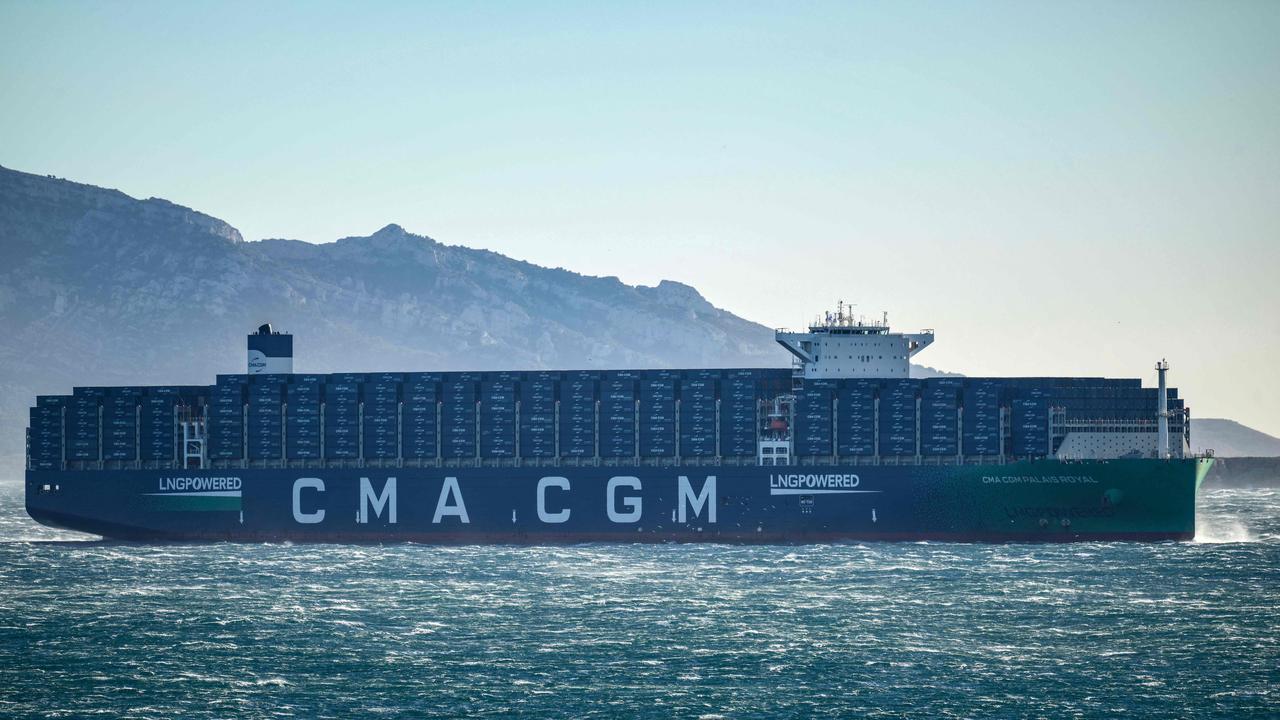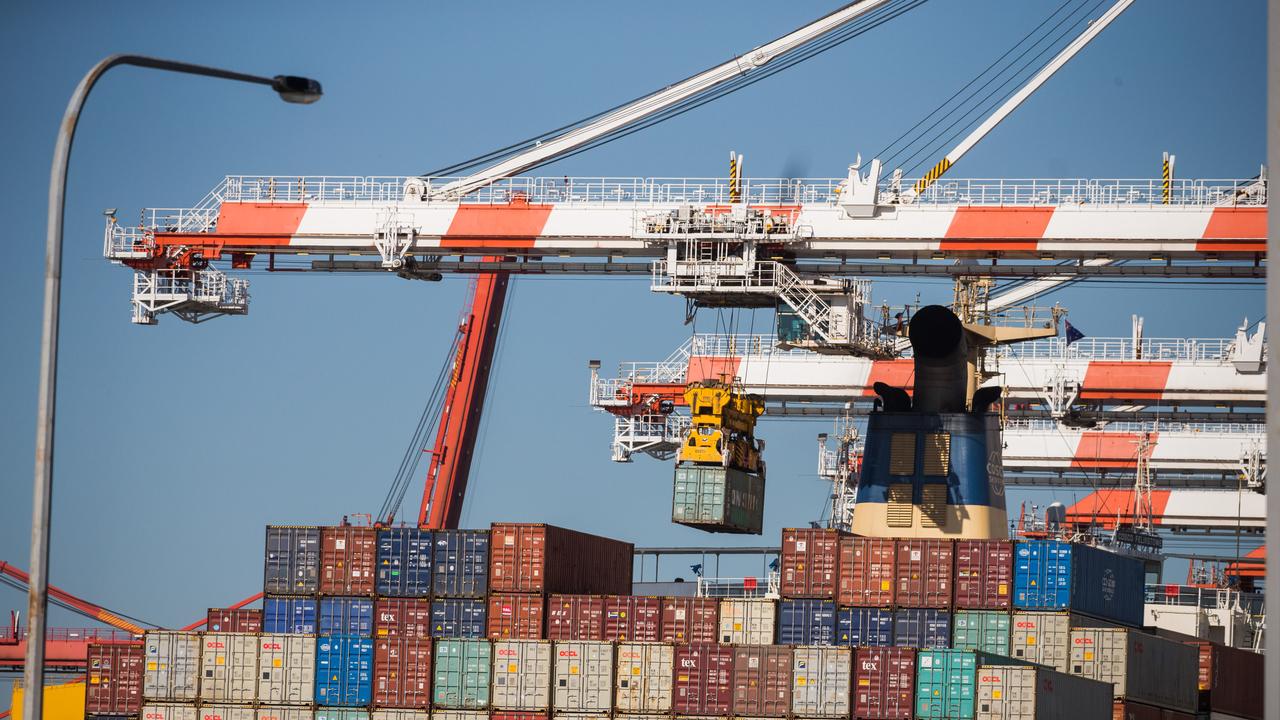Price hike fears over Red Sea shipping chaos, crippling port strikes
Consumers risk facing price hikes on everyday products, including white goods and pharmaceuticals, as chaos in the shipping industry at home and abroad threatens to blow out delivery times and increase costs.
Continued tensions in the Red Sea and crippling strikes at major Australian ports risk leading to price hikes for thousands of products as shipping schedules face significant delays.
Vessels traversing the Red Sea, a major thoroughfare for global trade, have come under attacks from Yemen-based Houthi rebels in recent months, leading shipping companies to reroute vessels around the Cape of Good Hope, adding days to a round-trip voyages and adding increased costs.
Although Europe contributes roughly 16 per cent of Australia’s container imports, prices for many goods are expected to increase, according to Shipping Australia, an industry body for the shipping companies.
Compounding higher prices and a blow out in shipping schedules, is the escalation of industrial action at stevedore DP World’s Sydney, Brisbane, Melbourne and Fremantle container terminals, with management and the Maritime Union at loggerheads over a new workplace deal.

A series of rolling strikes and work bans over the past three months has resulted in a backlog of tens of thousands of containers piling up at DP World facilities across the country.
Paul Zalai, director of the Freight and Trade Alliance, a peak body for Australia’s international supply chain sector, said the turmoil in the Red Sea, coupled with the bargaining negotiations at DP World which were costing the local economy at least $20m a day, would be felt across the economy.
“The impacts to trade due to the waterfront industrial action and Red Sea hostilities does not discriminate,” Mr Zalai said.
“In terms of imports, it will impact everything that enters Australia via sea freight containers from white goods, retail, furniture, essential building supplies, pharmaceuticals and food.”
Australian products bound for international markets would also be affected, Mr Zalai added, due to tight deadlines across the shipping industry.
“Export commodities are left stranded with many shipping lines missing scheduled ports and some unloading imports only and then moving on to catch up with international sailing schedules.
“This is having a devastating impact on producers, especially those with current and emerging seasonal peaks such as grapes and other horticultural products.”

Shipping Australia spokesman Jim Wilson said if hostilities in the Red Sea continued, the impact on costs and shipping schedules would likely intensify.
“If the crisis continues or if the naval interventions prove ineffective, we can only imagine that there will be continuing upwards freight rate pressure and delays to cargo,” Mr Wilson said.
“Ultimately, it is the everyday consumer that pays the bill of the increased costs which are passed on through the supply chain until they land, in one form or another, on the final user.”
However, the return of some vessels following the deployment of the US-led naval operation designed to protect the trade route, had buoyed hopes of a gradual restart of shipments.
“There has been cause for optimism as naval forces have escorted large merchant ships through the conflict zone without incident,” Mr Wilson added.
Danish shipping giant Maersk is set to resume operations through the Red Sea after it paused operation earlier this month.
“We are currently working on plans for the first vessels to make the transit and for this to happen as soon as operationally possible,” the multinational shipping firm said in a customer advisory, released on Sunday.
On Boxing Day, French shipping line CMA CGM also announced that some of its vessels had re-commenced travel through the Red Sea.
“We are currently devising plans for the gradual increase in the number of vessels transiting through the Suez Canal. We are monitoring the situation constantly and we stand ready to promptly reassess and adjust our plans as needed,” CMA CGM said in a statement.
However, industry executives said ships were not expected to return to the waterway en masse anytime soon granted ongoing challenges with insuring cargo that transited via the conflict-ridden waterway.



